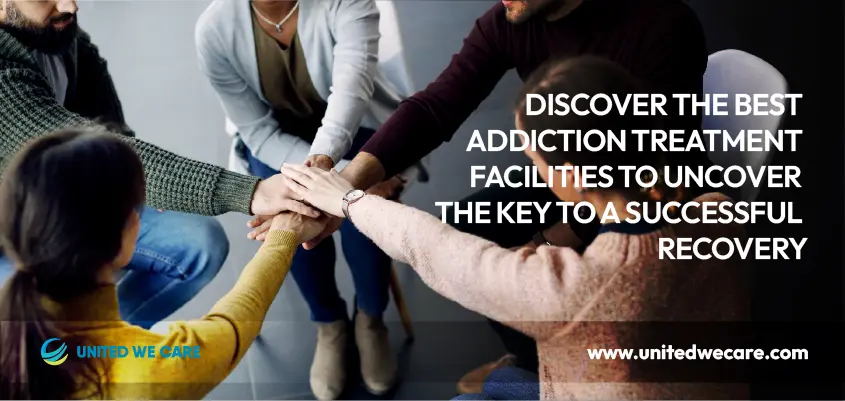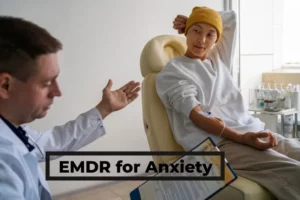Introduction
Embarking on the journey towards overcoming addiction requires courage, dedication, and support. Addiction treatment facilities provide a nurturing environment where individuals gain tools and resources to unlock the secrets of recovery. These facilities take an approach by addressing not only the physical aspects of addiction but also the psychological and emotional components.
Through evidence-based therapies, personalized treatment plans, and compassionate guidance, individuals can gain an understanding of their addiction, develop coping mechanisms, and rebuild their lives. By fostering empowerment and offering a support system, addiction treatment facilities pave the way for lasting recovery and a brighter future.
What Is Meant By Addiction Treatment?
Addiction treatment involves a process that aims to help individuals overcome substance abuse or behavioral addictions. It encompasses interventions and therapies designed to address the psychological and social aspects of addiction. The primary objective of addiction treatment is to assist individuals in achieving recovery in both the term and long term.
The initial phase of addiction treatment typically involves detoxification, under supervision, to safely remove substances or behaviors from the body. Following detoxification, individuals usually engage in therapy programs tailored specifically to their needs.
These programs can include forms of therapy, such as counseling, group therapy, family therapy, and holistic approaches like meditation or art therapy[1].
In addiction treatment, individuals are educated about addiction itself, its causes, and what triggers it. This knowledge helps them develop strategies and coping mechanisms to prevent relapse. Treatment facilities also provide a structured environment that encourages growth, self-reflection, and accountability[2].
A successful approach to addiction treatment recognizes the significance of addressing co-mental health disorders that often contribute to addiction. Integrated treatment methods that target both addiction and mental health have shown outcomes.
Addiction treatment is a process that goes beyond the phase. It involves aftercare support and continuous assistance to help individuals maintain their sobriety and navigate the challenges of life after treatment. To stay sober, one may require therapy, participation in support groups, and engagement in relapse prevention programs.
What Role Do Family and Friends Play In Addiction Treatment?
Family members and friends play a role in addiction treatment by offering support that contributes to an individual’s overall well-being and recovery. Here are some important aspects of their involvement[3]:
- Support System: Family members and friends serve as a support network throughout the treatment journey by providing love, encouragement, and consistent presence. The support and understanding provided by loved ones can have an impact on motivating and encouraging individuals to overcome addiction.
- Understanding and Empathy: By making an effort to comprehend addiction as an illness, family and friends can develop empathy and compassion. This creates a nonjudgmental space for the individual to express their struggles, fears, and aspirations. Building this understanding fosters. Open communication is an element for successful recovery.
- Education and Awareness: When family members and friends educate themselves about addiction and its effects, they gain insight into the challenges faced by their loved ones. This knowledge equips them to offer support, recognize triggers or signs of relapse, and navigate the journey of recovery together effectively.
- Active Participation: Participating actively in therapy sessions, support groups, or family counseling programs can significantly enhance the recovery process. By being involved, family members and friends understand how addiction affects relationships, address issues that may contribute to it, and contribute to the healing process while supporting the growth of the family unit.
- Setting Boundaries: Establishing boundaries is crucial in preventing behaviors that enable addiction. It also helps foster a sense of responsibility and accountability within individuals for their recovery journey. Clear boundaries play a role in safeguarding the well-being of both individuals undergoing recovery as well as their loved ones.
- Celebrating Milestones: Acknowledging and celebrating milestones achieved along the path of recovery is vital. It serves as a way to recognize progress made by individuals overcoming addiction. It supports the progress of individuals, boosts their self-confidence, and provides motivation to continue their journey towards lasting sobriety.
- Self-care: It is crucial for family and friends to prioritize their self-care and well-being. By seeking support for themselves, engaging in self-care practices, and setting aside time for rest and rejuvenation, they ensure that they have the mental strength to provide support during challenging moments.
In summary, the role of family and friends in addiction treatment is extremely valuable. Their support, understanding, active involvement, and focus on self-care contribute to the individual’s recovery journey, creating a nurturing environment that promotes healing and sustainable sobriety.
How Do You Find the Best Addiction Treatment Facility?
- Researching and gathering information: Conduct an investigation to discover addiction treatment facilities. Look for sources such as professionals, addiction specialists, or online directories.
- Licensing: We guarantee that you will receive addiction treatment services to safeguard your well-being. It is important to verify whether the facility is licensed and accredited by organizations. By adhering to all regulations and standards, they can ensure compliance with practices.
- Treatment Approach: Take into consideration the treatment approaches offered by the facility. When looking for an addiction treatment facility, it is important to find a program that offers evidence-based therapies and takes an approach to address the physical, psychological, and social aspects of addiction.
- Dual Diagnosis: Consider if the facility offers programs that cater to needs, such as dual diagnosis treatment for individuals with co-occurring mental health disorders.
- Qualifications: Evaluate the qualifications and experience of the treatment team, including addiction counselors, therapists, and medical staff.
- Take into account success rates: Read testimonials from patients, if available, to assess the effectiveness of the facility.
- Aftercare Program: Inquire about aftercare programs and ongoing support to ensure care after treatment is completed.
- Supportive Experiment: The environment and amenities provided by the facility should also be considered, as they can contribute to a supportive treatment experience.
- Insurance Coverage: Check if the facility accepts insurance coverage and explore affordability options that align with your budget.
Conclusion
Schedule a consultation. Visit the facility to ask questions, take a tour of the premises, and gauge the atmosphere and demeanor of staff members. Ultimately, trust your instincts when making your decision. These institutions provide the elements for recovery, offering individuals the necessary resources and assistance to regain control of their lives.
United We Care, a platform dedicated to well-being, is prepared to connect people with high-quality treatment centers that prioritize healing and enable long-term recovery.
REFERENCES
[1] A. Felman, “Addiction treatment: First steps, types, and medications,” Medicalnewstoday.com, 02-Nov-2018. [Online]. Available: https://www.medicalnewstoday.com/articles/323468. [Accessed: 21-Jun-2023].
[2] “Psychoeducation for substance abuse,” Silvermist Recovery. [Online]. Available: https://www.silvermistrecovery.com/2017/01/what-is-psychoeducation/. [Accessed: 21-Jun-2023].
[3] A. Lautieri and N. Ryan Kelley, “Family roles in addiction & the importance of family support in recovery,” Laguna Treatment Hospital, 25-Mar-2020. [Online]. Available: https://lagunatreatment.com/family-resources/addiction-and-family/. [Accessed: 21-Jun-2023].
[4] E. Starkman, “How to choose the right place for alcohol or drug rehab,” WebMD. [Online]. Available: https://www.webmd.com/mental-health/addiction/features/addiction-choosing-rehab. [Accessed: 21-Jun-2023].
[5] T. Pantiel, “How do I choose the right rehab?,” Addiction Center, 19-Dec-2017. [Online]. Available: https://www.addictioncenter.com/rehab-questions/choose-right-rehab/. [Accessed: 21-Jun-2023].










